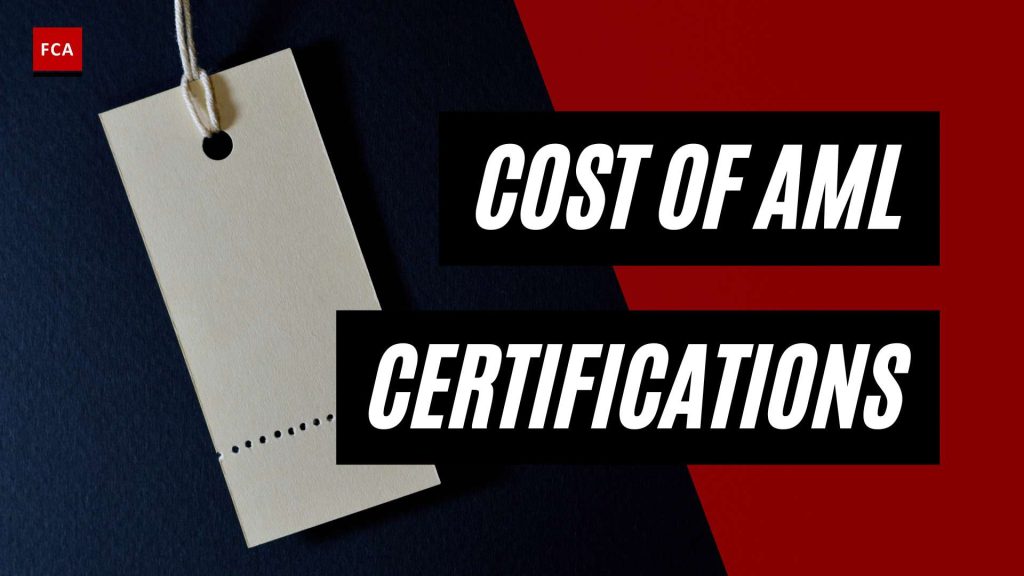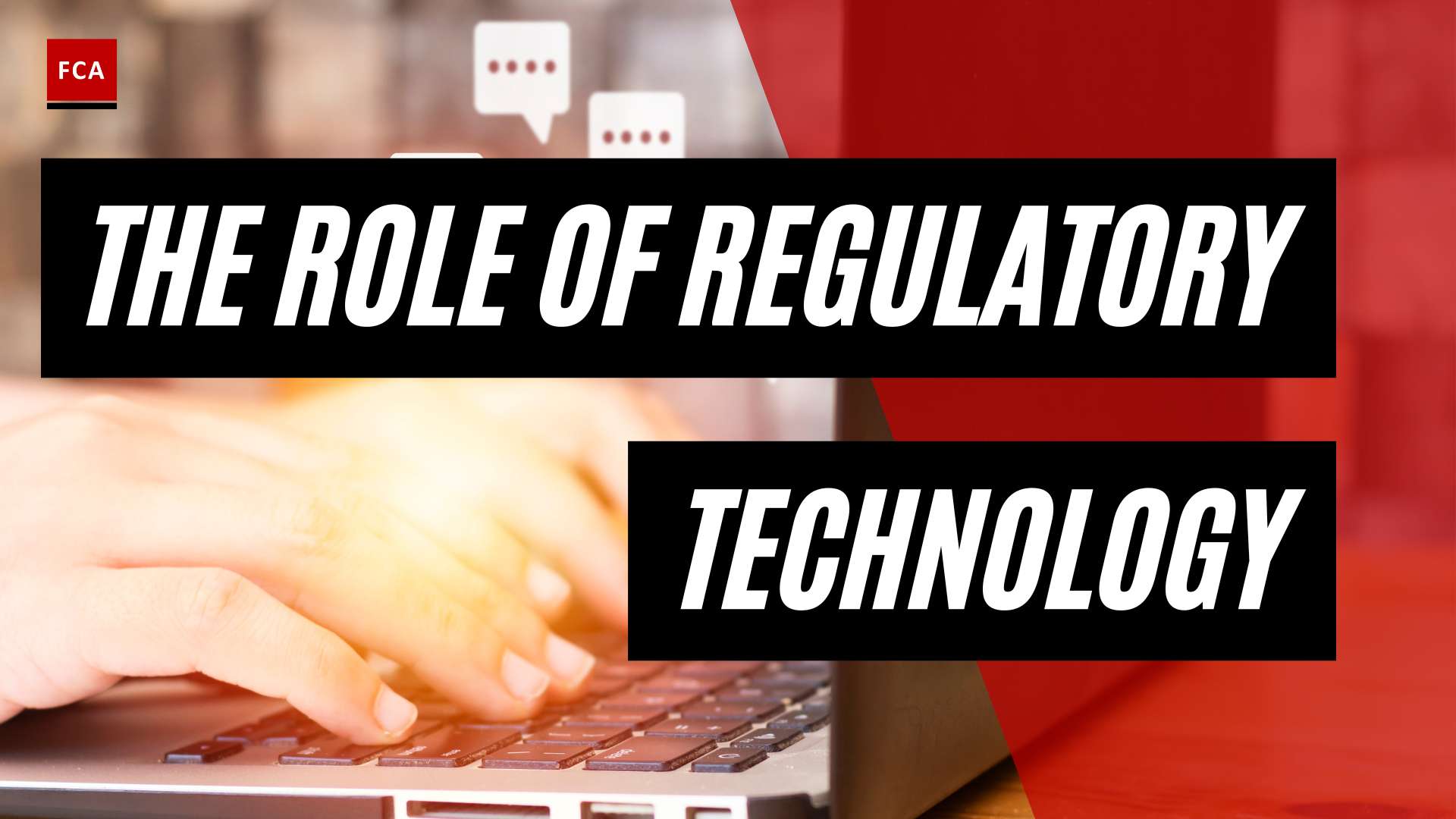AML Certification: An Overview
In the world of financial crime compliance, AML certifications play a vital role in equipping professionals with the necessary tools and insights to combat money laundering and other illicit financial activities. AML certifications are recognized globally for their expertise and are highly valued by employers in industries such as banking, insurance, and risk management.
Understanding AML Certifications
AML certifications, such as those offered by FCA (Financial Crime Academy), provide individuals with a comprehensive understanding of anti-money laundering processes, regulations, and typologies. These certifications are designed to enhance the skills and knowledge of professionals working in compliance, risk management, and anti-financial crime roles.
By pursuing AML certifications, professionals gain a deep understanding of the complexities of financial crimes, including money laundering, corruption, tax fraud, and illicit trade. They learn how to effectively detect, prevent, and combat these crimes, thereby safeguarding financial systems and organizations from infiltration by illegal funds.
Importance of AML Certifications
Investing in AML certifications can bring numerous benefits to professionals in the financial crime compliance field. Firstly, these certifications enhance career opportunities by demonstrating expertise and commitment to combating financial crimes. Employers often value AML certifications as a testament to an individual’s dedication and knowledge in this specialized area.
Moreover, AML certifications can lead to increased job opportunities and professional growth. With the rise in global financial crimes, organizations are actively seeking individuals with the skills and expertise to protect their businesses from illicit activities. AML certifications provide professionals with a competitive edge in the job market and open doors to new career prospects.
Additionally, professionals with AML certifications may enjoy higher salaries compared to their non-certified counterparts. Those holding AML certifications often command higher salaries due to their specialized knowledge and ability to mitigate financial crime risks effectively.
To pursue an AML certification, individuals can explore online courses and training programs offered by reputable organizations. These programs provide comprehensive education on AML processes, regulations, and best practices, empowering professionals to make a significant impact in the fight against financial crimes.
In the next sections, we will delve further into the different AML certification options available and discuss the associated costs. We will also explore the benefits of holding AML certifications, including career advancement and increased job opportunities.
AML Certification Options
When it comes to pursuing an AML certification, professionals in the field have several options to choose from. These certifications provide individuals with the knowledge and skills necessary to combat money laundering and other financial crimes. Two prominent AML certifications to consider are the CAMS certification and other AML certifications.
CAMP Certification
The Certified Anti-Money Laundering Professional (CAMP) certification is widely recognized as a leading credential in the AML field. Offered by the FCA (Financial Crime Academy), this certification demonstrates expertise in the detection and prevention of money laundering activities.
The cost of the CAMP certification is $420 annual. Check the updated pricing here. This fee covers the exam and study materials provided by FCA. The CAMP certification requires passing the exam and meeting specific AML certification requirements set by FCA.
Other AML Certifications
Besides the CAMS certification, there are various other AML certifications available to professionals in the field. These certifications may focus on specific aspects of anti-money laundering, such as typologies, investigations, or risk management.
The cost of other AML certifications can vary depending on the certifying organization and the specific certification pursued.
It’s important to research and compare different AML certifications to determine which best aligns with your career goals and interests. Consider factors such as certification cost, exam requirements, and the reputation of the certifying organization. Exploring AML certification programs and AML certification courses can provide further guidance in selecting the right certification for your professional development.
By obtaining an AML certification, professionals can enhance their knowledge, skills, and credibility in the field of anti-money laundering. These certifications not only demonstrate expertise but also open doors to a wide range of AML career opportunities and increased job opportunities.
Cost of AML Certifications
Obtaining an Anti-Money Laundering (AML) certification is a valuable investment for professionals working in compliance, risk management, and anti-financial crime. However, it’s important to consider the cost associated with these certifications. Let’s explore the cost of the CAMS certification and other AML certifications.
CAMP Certification Cost
The Certified Anti-Money Laundering Professional (CAMP) certification is one of the most recognized and respected certifications in the AML field. Check the cost of the updated pricing of CAMP certification exam in the FCA website.
Financial Crime Academy (FCA) bundle price includes everything and there are no additional fees or charges to earn your digital certification
To pass for the CAMP exam, students must complete all the video lessons, quizzes, and final assessments in each course. You can retake the assessments as many times as necessary until you reach an 60% passing grade
Cost of Other AML Certifications
Apart from the CAMP certification, there are other AML certifications available that professionals may consider pursuing. The cost of these certifications can vary depending on the certification body and the level of certification.
FCA offers various AML certifications, such as the Advanced AML Certifications.
It’s worth noting that the cost of AML certifications may differ among different providers and organizations. For example, LinkedIn mentions that AML certification costs $2,180 USD for individuals signing up from the private sector and $1,790 USD for those signing up from the public sector. The specific costs may vary based on factors such as membership status, industry sector, and study materials included in the certification program.
It’s essential to research and compare different AML certification options to determine the most suitable one based on your professional goals, budget, and industry requirements. Additionally, consider the value and recognition associated with each certification to make an informed decision.
By obtaining an AML certification, professionals can enhance their knowledge and expertise in the field, opening up new career opportunities and increasing their marketability. To learn more about the benefits of AML certifications, continue reading the section on Benefits of AML Certifications.
Benefits of AML Certifications
Obtaining an AML certification offers numerous benefits for professionals working in compliance, risk management, anti-money laundering, and anti-financial crime. AML certifications not only enhance one’s knowledge and skills in detecting and preventing financial crimes but also provide a competitive edge in the job market.
Career Advancement
Investing in AML certifications can open doors to career advancement opportunities. Many organizations value employees with specialized knowledge in anti-money laundering and financial crime compliance. AML certifications demonstrate a commitment to professional growth and expertise in the field, making individuals more desirable candidates for promotions and leadership positions.
Certified professionals are often entrusted with additional responsibilities, such as developing and implementing AML programs, conducting risk assessments, and training colleagues on compliance best practices. The comprehensive knowledge gained through AML certifications allows professionals to contribute effectively to their organizations’ overall risk management and compliance strategies.
Increased Job Opportunities
The demand for AML professionals continues to grow as financial institutions and businesses strive to mitigate the risks associated with money laundering and financial crimes. AML certifications are recognized globally for their expertise, and individuals who hold these certifications have a competitive advantage in the job market.
Certified professionals are sought after by banks, insurance companies, fintech firms, and other financial institutions, as well as regulatory bodies and law enforcement agencies. With an AML certification, professionals can explore a wide range of career opportunities, including roles in compliance, risk management, investigations, and regulatory affairs.
Moreover, obtaining an AML certification can lead to higher earning potential. Professionals with AML certifications often earn higher salaries compared to their non-certified counterparts. The specialized knowledge and skills acquired through these certifications make individuals valuable assets to organizations, justifying their competitive compensation packages.
To enhance your career prospects and tap into the growing demand for AML professionals, consider pursuing reputable AML certifications like the CAMP certification. These certifications provide the necessary tools and insights to succeed in the financial crime compliance sector, equipping you with the expertise to combat financial crimes and protect financial systems from illicit activities.
In addition to certifications, continuous professional development through AML training programs is essential to stay updated with the latest regulatory requirements, industry trends, and emerging financial crime typologies. A combination of certifications, training, and experience will position you for success in the dynamic field of AML and financial crime compliance.
AML Training and Education
To succeed in the field of anti-money laundering (AML) and effectively combat financial crimes, professionals must undergo proper AML training and education. AML training is essential to manage financial crime risk, protect organizations, and comply with regulations. It equips individuals with the necessary knowledge and skills to proactively detect and eliminate criminal activities (LinkedIn).
Importance of AML Training
AML training is particularly crucial for employees in the insurance and financial sectors, as well as those in cash service businesses (MSBs). By understanding money laundering processes and laws, professionals can effectively prevent criminals from infiltrating illegal funds into financial systems and address the increasing challenges posed by financial crimes globally (Dumpsgate).
Regular AML training ensures that employees stay up-to-date with the evolving landscape of financial crimes. Some providers require AML training every 24 months, while others mandate a training frequency of once a year. By staying informed about the latest trends, techniques, and regulatory changes, professionals can better protect their organizations and make informed decisions to combat money laundering activities (LinkedIn).
AML Training Programs
Various AML training programs are available to help professionals enhance their understanding of AML processes and laws. These programs cater to different levels of expertise and provide comprehensive knowledge to combat financial crimes.
When selecting an AML training program, it’s important to choose one that meets the requirements of your industry and aligns with your career goals. Consider programs that cover topics such as risk assessment, customer due diligence, transaction monitoring, and regulatory compliance.
Some organizations offer online AML certification courses, allowing professionals to access training materials conveniently from anywhere. Online courses often provide interactive modules, case studies, and assessments to enhance learning and ensure comprehension. Additionally, they offer flexibility in terms of scheduling and pacing.
To find suitable AML training programs, consider organizations and institutions that specialize in anti-money laundering education. Look for programs that are recognized and accredited by industry associations or regulatory bodies.
By investing in AML training and education, professionals can acquire the necessary skills and knowledge to effectively combat financial crimes, protect their organizations, and advance their careers in the field of AML compliance.
For more information on AML certification requirements, benefits, and the certification process, refer to our related articles on aml certification requirements, aml certification benefits, and aml certification process.
Global Efforts Against Money Laundering
To effectively combat money laundering and financial crimes, global efforts have been established to create a coordinated approach across nations and financial institutions. Financial institutions play a vital role in the fight against money laundering, and international initiatives and regulations provide a framework for their actions.
Role of Financial Institutions
Financial institutions, including banks, credit unions, and other financial service providers, play a crucial role in preventing and detecting money laundering activities. They are at the forefront of implementing anti-money laundering (AML) measures to ensure the integrity of the financial system.
Financial institutions are responsible for conducting customer due diligence, monitoring transactions for suspicious activities, and reporting any suspicious transactions to the appropriate authorities. By implementing robust AML programs, banks and other financial entities contribute to the prevention and detection of money laundering and the protection of the global financial system.
International Initiatives and Regulations
Several international initiatives have been established to promote and enforce anti-money laundering measures on a global scale. These initiatives aim to create a unified front against financial crimes and illicit activities. Here are some notable initiatives and regulations:
- The Bank Secrecy Act (BSA): The BSA, introduced in the United States in 1970, was the first anti-money laundering legislation. It laid the foundation for implementing AML procedures and regulations to prevent and restrain financial crimes and illegal activities. Over the years, the BSA has undergone multiple changes and strengthening to adapt to evolving threats and enhance AML efforts (Dumpsgate).
- The Financial Crimes Enforcement Network (FinCEN): FinCEN is a bureau of the U.S. Department of the Treasury and plays a vital role in combating money laundering and other financial crimes. It assesses penalties against financial institutions for Bank Secrecy Act/anti-money laundering (BSA/AML) violations. In recent years, FinCEN has assessed significant penalties, totaling billions of dollars, to enforce compliance with AML regulations (SEC).
- The Financial Action Task Force (FATF): Established in 1989, the FATF is an intergovernmental organization that develops and promotes international standards for anti-money laundering and counter-terrorism financing. Its recommendations provide a framework for countries to implement effective AML measures. The FATF’s efforts focus on setting global standards, conducting evaluations, and fostering international cooperation to combat money laundering.
- The International Monetary Fund (IMF): The IMF, established to safeguard the stability of the international monetary system, plays a crucial role in creating a framework for anti-money laundering measures on a global scale. The IMF works with its member countries to assess their AML regimes, provide technical assistance, and promote effective implementation of AML measures (Dumpsgate).
- The European Union (EU) Directives: The EU has introduced various directives to combat money laundering and terrorist financing within its member states. The initial EU Anti-Money Laundering Directive was introduced in 1990, emphasizing the commitment to establish a financial crime-free culture. Subsequent directives have further strengthened AML regulations within the EU, ensuring consistency and cooperation in preventing money laundering (Dumpsgate).
These international initiatives and regulations highlight the collective effort to establish a robust framework for preventing money laundering and financial crimes. By adhering to these standards, financial institutions contribute to a safer, more secure global financial system.
Maintaining Multiple Certifications
For professionals in the field of anti-money laundering (AML), maintaining multiple certifications can be beneficial for career advancement and expanding job opportunities. However, it’s important to consider the associated costs and the possibility of deactivating certifications if necessary.
Multiple Certifications and Costs
When holding multiple AML certifications, professionals need to be aware of the financial obligations that come with each certification. Each certification has its own fees, renewal requirements, and payment structure. By maintaining multiple certifications, professionals demonstrate their commitment to continuous learning and expertise in various aspects of AML compliance.
To provide an example, let’s consider the cost implications for maintaining certifications in the medical field. Physicians who hold certifications from the American Board of Internal Medicine (ABIM) are required to pay a Maintenance of Certification (MOC) fee for each certification they possess. If a physician decides to deactivate one of their certifications, they must inform ABIM by January 31, 2024; otherwise, they will be charged the annual fee for that certificate for 2024 (ABIM).
It’s essential for professionals with multiple AML certifications to stay current on payments for all their certificates to access the benefits and resources associated with each certification. Failure to maintain timely payments may result in additional fees or limitations on accessing certain educational resources or assessments. For example, in the case of ABIM certifications, physicians who are maintaining multiple certifications need to stay current on payments to access the Longitudinal Knowledge Assessment (LKA), even if they are participating in just one discipline. Late payments may incur a $40 fee for each certificate (ABIM).
Deactivating Certifications
In some cases, professionals may decide to deactivate one or more of their AML certifications. Deactivating a certification can be a personal choice based on changing career paths, evolving interests, or shifting job responsibilities. It’s important to review the policies and requirements of the certification provider to understand the process and implications of deactivation.
For instance, professionals holding ABIM certifications must inform the board if they wish to deactivate a certification. This communication needs to be done by a specific deadline to avoid being charged the annual fee for that certificate. By following the deactivation process, professionals can ensure that they are no longer financially responsible for certifications they no longer wish to maintain (ABIM).
When considering deactivation, professionals should weigh the potential benefits and drawbacks of maintaining multiple certifications. Factors such as the cost of maintenance, the relevance of each certification to their current or future career, and the impact on job opportunities should be carefully evaluated.
By understanding the costs associated with maintaining multiple certifications and the process for deactivating certifications, professionals can make informed decisions about their AML certification journey. These decisions should align with their career goals and the evolving demands of the AML industry.
Cost of AML Certifications
Obtaining an Anti-Money Laundering (AML) certification is a valuable investment for professionals working in compliance, risk management, and anti-financial crime. AML certifications are recognized as essential tools to equip individuals with cutting-edge skills to combat financial crimes, such as tax fraud, corruption, money laundering, and illicit trade (Dumpsgate). Let’s explore the costs associated with AML certifications.
Cost of Other AML Certifications
Apart from the CAMS certification, there are other AML certifications available in the market. The costs associated with these certifications may vary depending on the provider and the level of recognition. It is recommended to research and compare the offerings of different certification programs to determine the most suitable option for your career goals and budget.
When considering the cost of AML certifications, it is essential to recognize the long-term benefits they can offer. Investing in AML certifications can lead to increased job opportunities, professional growth, and higher salaries for individuals in the financial crime compliance field. These certifications demonstrate expertise and commitment to combating financial crimes, making professionals more valuable and sought after in the industry.
While the initial cost of obtaining an AML certification may seem like an investment, it is important to consider the potential returns and career advancements that can be achieved. Additionally, organizations may support their employees’ pursuit of AML certifications as part of their professional development programs.
It is worth noting that AML certifications often require individuals to maintain their certification through ongoing education and training. This maintenance of certification (MOC) typically incurs additional fees, which may vary depending on the certifying organization and the specific requirements. For more information on MOC and its associated fees, refer to our section on ABIM Maintenance of Certification.
By obtaining an AML certification, professionals demonstrate their commitment to staying up-to-date with the latest industry practices and regulations. This can lead to career advancement opportunities and increased job prospects in the field of AML and financial crime compliance. Considering the benefits and potential growth that AML certifications can offer, the cost is an investment in one’s professional future.









